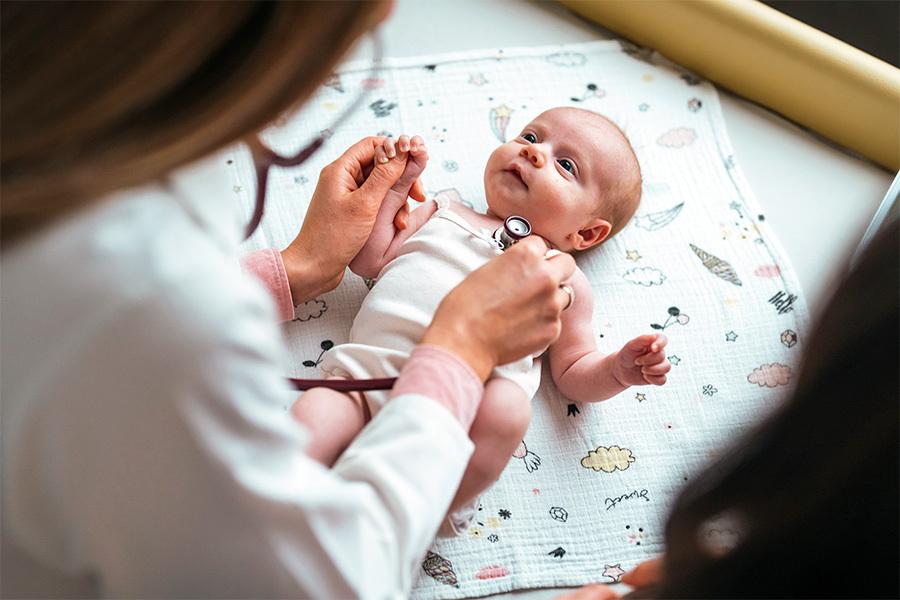The RS virus is a quite common respiratory infection. In adults and older children, the RS virus produces symptoms of a common cold. However, newborns and young children are extra sensitive if they are infected. It is especially important that you try to protect your little one from infection. RSV infections often occur between late autumn/winter and early spring. The Public Health Agency of Sweden’s website publishes statistics on the number of RSV cases. Newborn infants, premature babies and babies with certain congenital diseases are more at risk. Contact your hospital or healthcare provider immediately if your little one is in any of these categories. Young children typically breathe through the nose. If a little baby gets the RSV infection and cannot eat, it is usually because it is too much effort for baby to breathe, and difficulty breathing takes a lot out of a baby.
Determining if your baby has an RSV infection
Initially, you will not know if baby has the common cold or the RS virus. Typical for the RS virus is thick mucus. Your baby may dry cough and develop a fever. Your baby may become tired and eat not as well.
Thick mucus makes it difficult for baby to eat and breathe. If your baby’s general condition is more affected—as in if your baby is more tired/lethargic, coughing becomes heavier, your baby has difficulty breathing, does not nurse/eat as before, or urinates less—get medical care immediately.
What you can do if your baby gets the RS virus
Let your baby lie so his or her upper body is in an elevated position (tip: place a few cushions under the head of the mattress) so it is easier for baby to breathe. Carry your baby in an upright position, either in a sling or baby carrier. Drop saline drops in baby’s nose to dissolve the mucus or use a bulb syringe (available in pharmacies) to remove the sticky nasal mucus. It is common that baby will want to nurse/eat more often. If you are the slightest uncertain about your baby’s health, call your healthcare provider or get emergency care.
Preventing infection
Avoid meeting adults and older children who have a cold. Avoid kissing your baby in the face; kiss the feet instead. Wash your hands frequently with soap and hand sanitizer. If you have a cold, sneeze in the crook of your arm, not your hands.
About the RS virus RS virus stands for respiratory syncytial virus and it is a paramyxovirus that causes severe respiratory infections. Symptoms range from a mild cold to serious pneumonia or bronchiolitis.
Virus particles can survive for 12 hours on hard surfaces such as door handles or a tabletop, and for less time on soft surfaces, such as hands and tissues.
An infection arises when the virus comes in contact with the mucus membranes in the nose, mouth and eyes (and also through inhaling tiny droplets from coughing and sneezing).
It takes between three and six days from when a person is infected until they get sick.
Sources:
- Swedish Public Health Agency
- 1177 Vårdguiden
- Elisabeth Hjärtmyr
